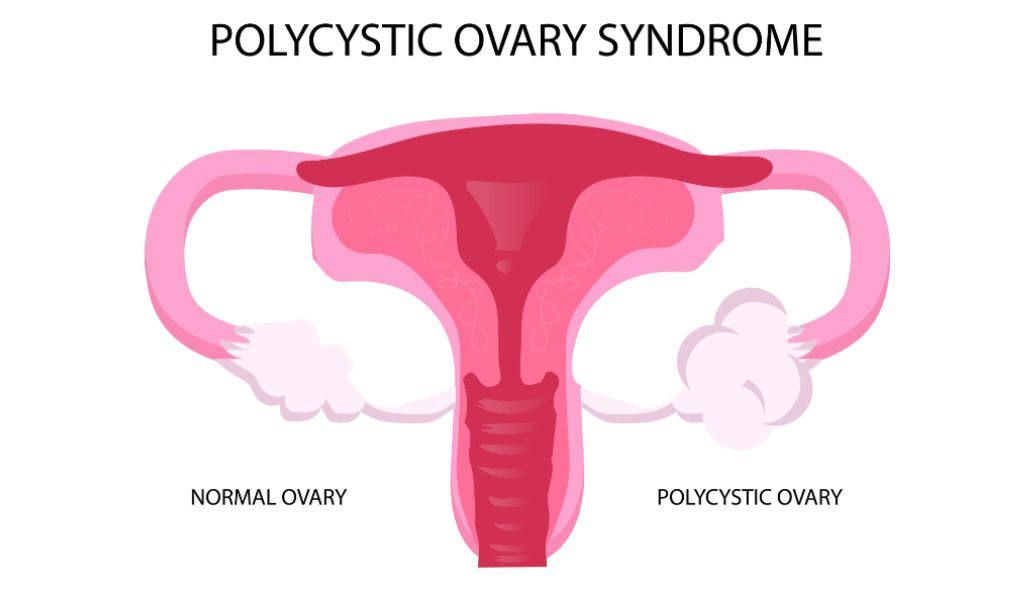Infertility in women with PCOS
Polycystic ovary syndrome (PCOS) is a common hormonal condition that affects women of reproductive age. It usually starts during adolescence, but symptoms may fluctuate over time. The condition affects an estimated 8–13% of women of reproductive age, and up to 70% of cases are undiagnosed. PCOS can cause hormonal imbalances, irregular periods, excess androgen levels, and cysts in the ovaries.
Having PCOS does not mean you can’t get pregnant. In women with PCOS, the hormonal imbalance interferes with the growth and release of the ovum (egg) from the ovaries (the process is known as ovulation). If the woman does not ovulate then she can't get pregnant.
Irregular periods, usually with a lack of ovulation, can make it difficult to become pregnant. PCOS is one of the most common but treatable causes of infertility. Some of the factors that contribute to infertility in women with PCOS are:
- Failure To Release Eggs( Anovulation) & Also Disrupts Normal Ovarian Function & Inhibits Follicle Development & Maturation
- Causes: Particularly elevated levels of:
- Luteinizing hormone (LH
- Testosterone
- Insulin
- Endometrial Abnormalities:
- Women with PCOS may have irregular menstrual cycles and inadequate progesterone levels, leading to irregular shedding of the uterine lining (endometrium) and abnormal menstruation. These endometrial abnormalities can impair the implantation of a fertilized egg, reducing the likelihood of a successful pregnancy.
The complex interplay of hormonal imbalances, ovarian dysfunction, insulin resistance, and metabolic abnormalities seen in PCOS contributes to infertility in affected women. Effective management of PCOS, including lifestyle modifications, medications to regulate ovulation, and fertility treatments, can help improve fertility outcomes and increase the chances of successful conception and pregnancy for women with the condition.
Tips To Prevent Infertility
- Stop Consuming Inflammatory Foods:
- Balanced meals with grains, pulses, lentils cooked veggies, fish/ eggs, meats, nuts & seeds.
- The anti-inflammatory effects are due to short-chain fatty acids, induced by the intake of dietary fibre, and the high intake of omega-3 polyunsaturated fatty acids in fish, eggs, seeds (PUFAs) and antioxidants contained in vegetables and fruits.
- Proinflammatory foods should be limited; these include products stored for a long time, processed at high temperatures, whose texture, taste and smell have been artificially changed and/or contain high concentrations of advanced glycation end (AGE) products.
- These advanced glycation end (AGE) products increase the risk for diabetes, atherosclerosis, chronic kidney disease, and Alzheimer's disease.
 Sleep adequately (Melatonin):
Sleep adequately (Melatonin):
- Poor sleep, circadian clock disruption, irregular sleep/wake schedules, artificial lighting and night shift may contribute to metabolic and hormonal disorders that can cause menstrual and reproductive dysfunctions
- Reduced melatonin concentrations may be responsible for anovulation and poor oocyte quality in PCOS.
- Melatonin increases oocyte and embryo quality, the number of mature oocytes, the production of progesterone from the corpus luteum, and fertilisation and pregnancy rates in PCOS Melatonin also reduces insulinemia and improves IR.
- Maintain Adequate Levels Of Vitamin D and Vitamin B12 If Metformin Is Used:
- Vitamin D, and Calcium, may improve menstrual disturbances and metabolic factors in PCOS. Deficiency can cause lower-quality egg production, fewer successful embryo implantations, and lower ovarian reserve.
- Vitamin B12, especially if you are on Metformin.
- Exposure To Polychlorinated Biphenyl(PCB):
- Exposure is associated with menstrual cycle abnormalities and failure of implantation in vitro fertilisation procedures. Serum bisphenol A is associated with PCOS and it might be involved in the IR and hyperandrogenism of PCOS. PCBs are easily absorbed by the body and are stored in fatty tissue.
- Smoking & Alcohol
- Smoking can cause hormonal irregularities and lower the reserve of fertile eggs. Alcohol can cause ototoxicity, which can affect puberty, lower progesterone levels and increase estrogens
Struggling with PCOS-related infertility. Visit Dr. Joline's Clinic for expert guidance.
